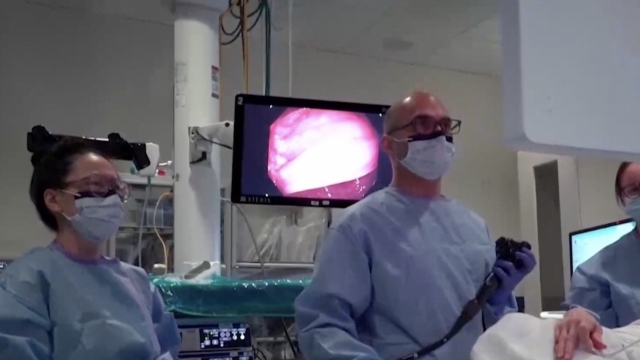Millions of Americans are eligible for a colorectal cancer screening and haven't gotten one. That's the takeaway of new report from the Journal of the American Medical Association.
Colorectal cancer will kill an estimated 50,000 people in the U.S. this year, according to the American Cancer Society. It disproportionately affects Black Americans, American Indians, Alaska Natives and Hispanic Americans, the Colorectal Cancer Alliance says.
Colorectal cancer is also the second leading cause of cancer deaths globally, according to the World Health Organization.
This new estimate shows the whole number of Americans who fit within screening guidelines. The new research shows about 117 million people total should get screened. Of that 44-60 million have not.
In 2021 the U.S. Preventative Services Task Force expanded the recommended screening ages from 50 down to 45 and going up to 75 years of age. Since 2016 that's also included certain adults 76 to 85 years old based on their doctor's recommendations and their health.
Findings like these can impact public health funding and focus.
Final public health initiatives can depend on Congress's budget and how much is given to the Department of Health and Human Services, but much of it is driven by efforts like research, training, grants and outreach programs — many of which can be multi-year.
That can make a large difference, especially in communities where we see health disparities. For example, Black Americans are 35% more likely to die from colorectal cancer and 15% more likely to develop it than White Americans.
Right now, a colonoscopy is the gold standard for colon screening. A new blood test and mail stool tests are other alternatives — but they come with caveats. Blood and stool tests can cause higher numbers of false positives and negatives than a colonoscopy.
But colorectal surgeons say when it comes to screenings — any screening is better than none.
SEE MORE: Cancer charity did very little to help patients, feds allege
Trending stories at Scrippsnews.com




